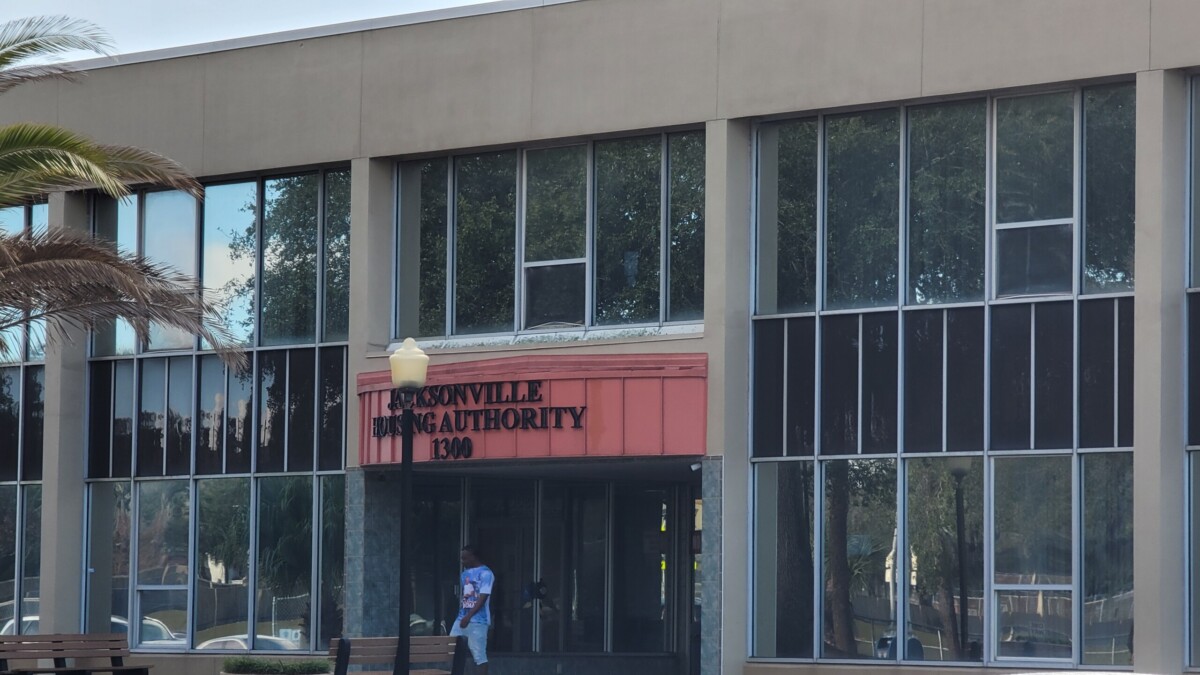A homeless advocate says he will sue the city of Jacksonville over its response to a new state law that prohibits camping or sleeping in public places.
The new law allows people to sue a muncipality if they think the city is not enforcing the law properly.
Attorney A. Wellington Barlow claims the city “hurriedly and ill-advisedly” instituted a $1 million plan to find shelters and services for the city’s homeless.
The plan came after City Council voted down a more expansive $10 million proposal last fall. Barlow said he hopes the lawsuit threat will restore what was cut and help the homeless.
Barlow on Monday sent a notice of intent to sue to City Council members Matt Carlucci and Michael Boylan.
Asked about the possible legal action Tuesday, Mayor Donna Deegan said she is frustrated that City Council cut her proposed $10 million homelessness plan. Her five-year plan would have expanded homeless outreach teams, increased shelter beds, set up housing-focused case management support and create a “shelter village” with 100 beds to start, among other proposals.
“It was a very well-thought-out, well-planned homelessness approach which frankly council decided not to invest fully in because they said they did not want to take that money from our very ample reserves,” Deegan told Jacksonville Today.
“I understand the frustration over the homelessness situation,” Deegan said. “We are trying very hard to move forward at a very good pace to get this issue resolved, and frankly we need council to come along on those things.”
The new homeless law
The new Florida law, which that took effect in October, made it illegal for municipalities to allow people to sleep on sidewalks, in parks, on beaches or in other public spaces. Beginning Jan. 1, residents, business owners and the state were able to sue any city they believe isn’t doing enough about its homeless issue.
In anticipation of the law, Jacksonville officials unveiled a 12-point plan in July, the work of a 21-member Homelessness Work Group that included city officials, homeless advocates and shelter managers.
At the time, Deegan said the plan would achieve what she called “functional zero” — making the number of people who become homeless equal to those who find permanent housing. But City Council cut $9 million from the $10 million plan, as well as $10 million for an affordable housing fund that Deegan said would generate $30 million in matching contributions from the private sector.
Soon after the state law took effect, new City Council legislation allocated $1.33 million to add beds at three shelters — 44 beds at Trinity Rescue Mission, 26 at City Rescue Mission and 40 at Salvation Army.
Funding also was approved for a seven-person team from the Jacksonville Fire and Rescue Department to help homeless people access mental health and substance abuse programs. Homeless people interviewed by the team could also choose a bus ticket to get them back to their hometown or face arrest.
During a recent City Council Finance Committee meeting, police officials said the team has worked with 900 homeless people since October. Of those, 93 used the bus option, 60 were admitted to a shelter and 86 were arrested.
Barlow’s notice of intent to sue said the way the city is handling the homeless “woefully fails” to meet their needs. He included numbers and names of homeless people who have died in recent years.
“Nor is it even a good faith effort to temporarily house scores of children, women and men who continue to suffer homelessness and perish on the streets of Jacksonville,” he wrote. “121 persons died ‘while experiencing homelessness’ on the (mean, selfish, unforgiving and monetarily merciless) streets of the ‘Consolidated City of Jacksonville’ in 2024, 2023 and 2022.”
Barlow also wrote that the city “negligently and/or intentionally failed” to provide enough temporary shelter for the homeless. The city also failed to adhere to state-mandated requirements in the new law, which said that cities and counties must designate government-owned property “for the purposes of public camping or sleeping,” but for no more than a year.
Those who camp there must be kept safe and have access to restrooms, running water and “behavioral health services, which must include substance abuse and mental health treatment resources,” Barlow wrote.
“The failure of the (city of Jacksonville) to adhere to the state-mandated requirements has caused, and continues to cause pain, suffering and death to homeless persons sleeping in third-world conditions while the (city) continues to lavish tax dollars on millionaires and billionaires to fund private industries at the expense of the poor,” Barlow’s notice states.
He said his legal action will seek monetary damages to provide “substantive help and permanent supportive housing” for homeless people, plus counseling to address substance abuse and other issues.







